During the period (17th-21rst) of October the third edition of the ESA Galileo Teacher Training (ESA_GTTP) was held by the CESAR Team, in an online format, under the topic "Space for All". ESA_GTTP is a joint collaboration between the CESAR Team and NUCLIO, who are the coordinators of the Galileo Teacher Trainings (GTTP), which started in 2020, in collaboration with the Institute of Astrophysics of the Canary Island (IAC), the Faulkes Telescope Project and the National's School Observatory.
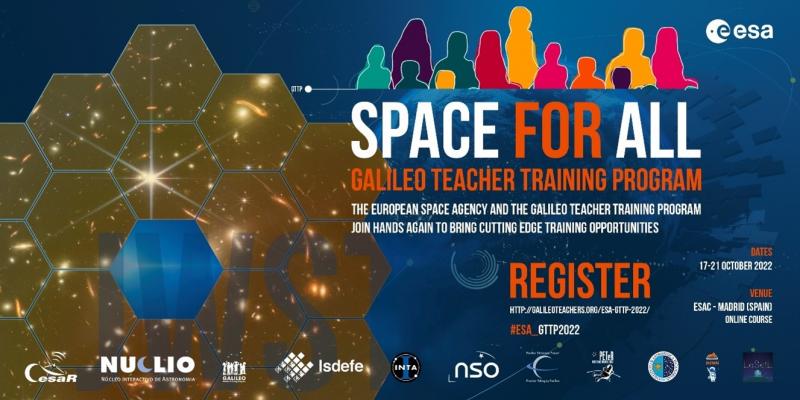
Figure 1: ESA_GTTP2022 poster
Around 50 teachers, spread all around the world (see Figure 2), teaching all kind of subjects from primary to secondary educational level, vocational training and astronomy clubs attended to this course. In this edition it was the first time that we could count among our collaborators with teachers, in particular from Bahrain and Iran.

Figure 2: Location of teachers attending to the ESA_GTTP2022
This teacher training was designed as a perfect combination among experts talks (scientist and engineers), educational activities easy to replicate in the classroom and teacher's feedback. The expert talks included an introduction to the European Space Agency (ESA) and its scientific programme as well to an introduction to the CESAR Project.
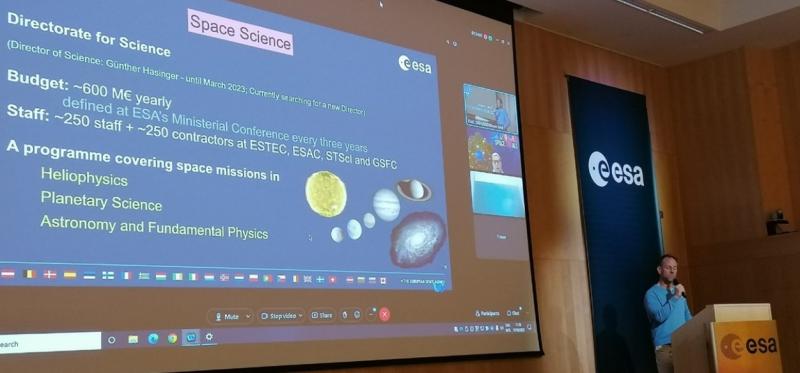

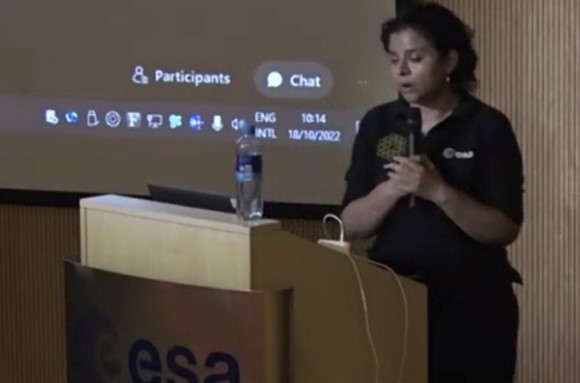
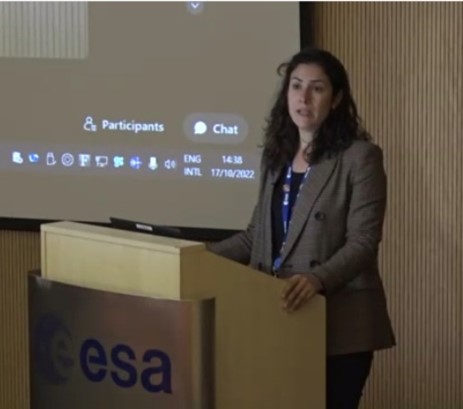
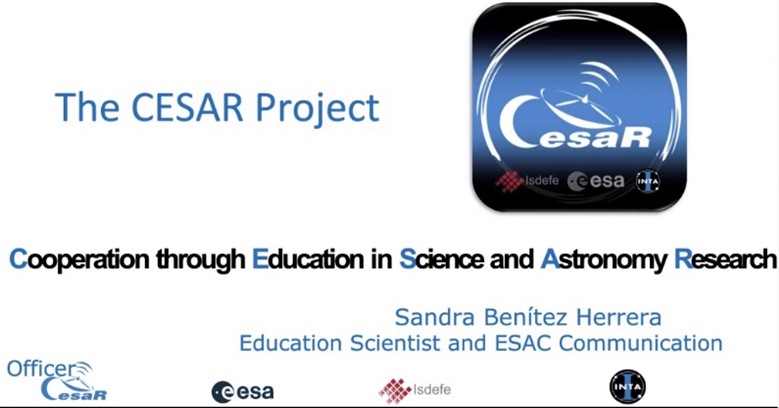
Figure 3: (Top) Introduction to ESA by Dr. Markus Kissler-Patig (Head of the ESA Science and Operations Department), (Center) Introduction to the ESA Scientific Missions by Dr. Gaitee Hussain (Head of the ESA Science Division), (Bottom) Introduction to the CESAR Project by Dr.Sandra Benítez, coordinator of the CESAR Team and ESAC Communication Team.
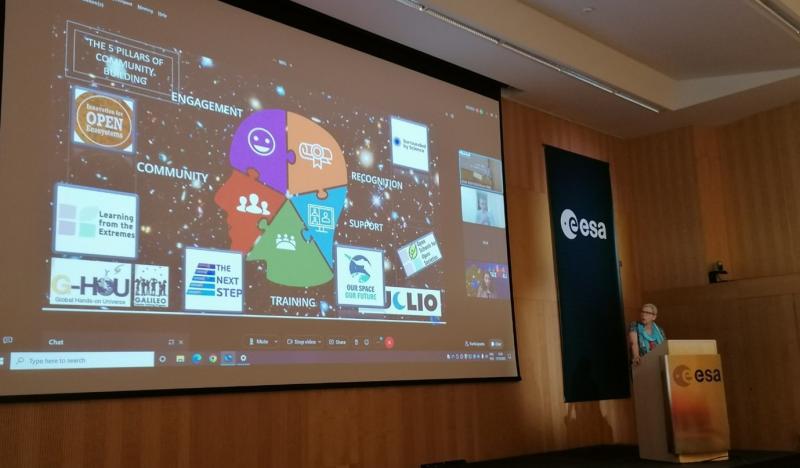
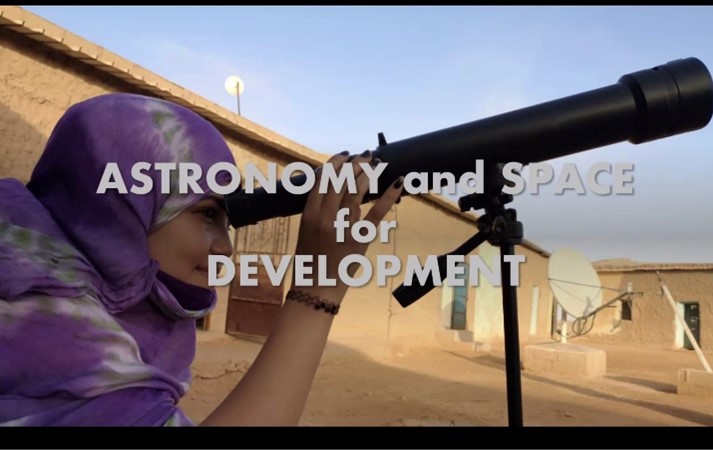
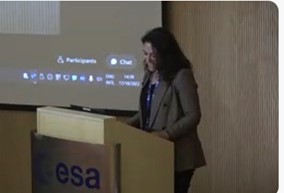
Figura 4: (Top) Expert talk from Dr. Rosa Doran, coordinator of the NUCLIO Team, about outreach and education in the XXI century in Astronomy. (Bottom) expert talk from Dr. Sandra Benítez, about Astronomy and Space for Development.
As part of the expert talks we could count with the latest news about the James Webb Space Telescope mission and how its high resolution images are changing the knowledge we had from the Universe, and in particular, the detection of the potential most ancient galaxy ever detected (~13.500 million years-old), the Gaia mission and its latest data release (Release 3) that allows to generate the most precise 3D map of the Galaxy (scanning ~1% of our galaxy), the Solar Orbiter mission and its new discoveries about the Sun magnetic field variation and its impact in the solar wind, together with the current status of the BepiColombo mission, on its way to Mercury, which has taken pictures with a webcam on its already sixth fly-by around the planet, before achieving its final orbit around Mercury, on the 2025.
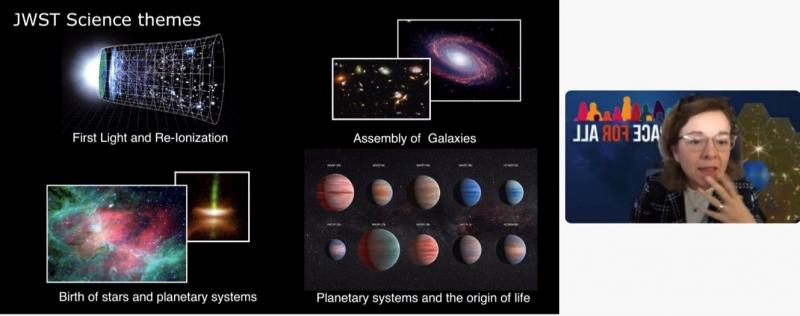
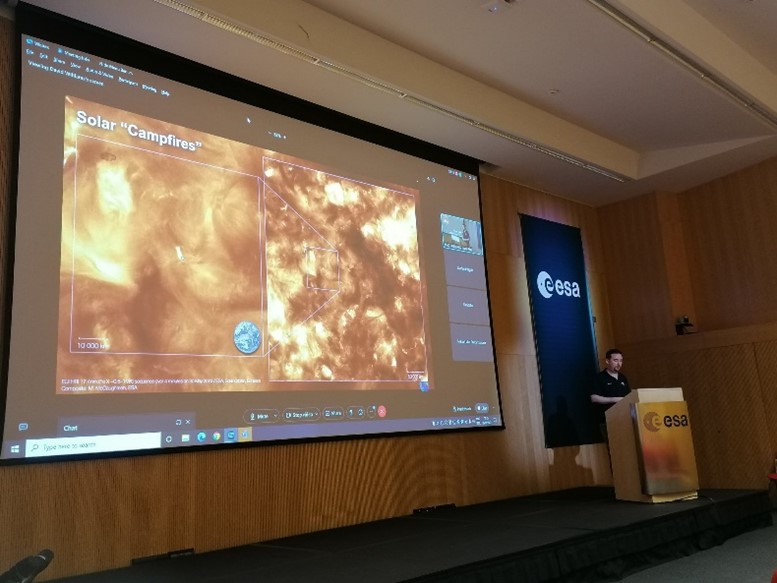
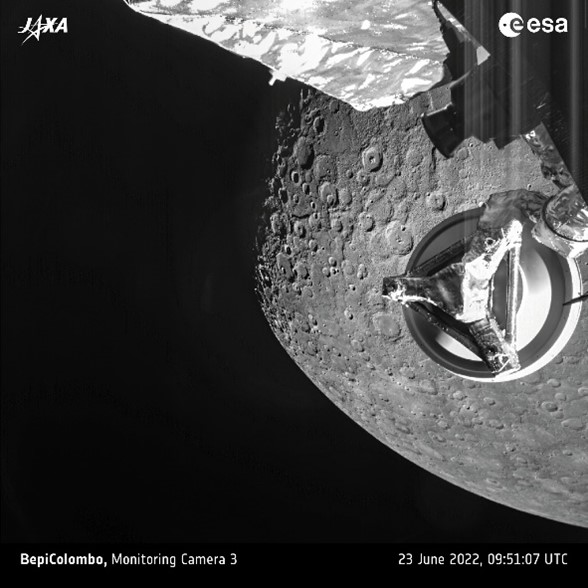
Figure 5: (Top) Introduction to the NASA/ESA James Web Space Telescope talk performed by Dr. Giovanna Giardino ( ESA scientist advocated to the JWST NIRSpec instrument), (Bottom left) Introduction to the Solar Orbiter latest discoveries by Dr. David Williams (SOLO calibration scientist) and (Bottom right) last BepiColombo assisted manoeuvre around Mercury.
Together to the expert talks there were performed several hands-on activities, some with common materials and some with computers and educational software, all of them easy to reproduce in the classroom and quite visual. Among the hands-on activities teachers could extract the tomato DNA and see the different type of craters created in the solar system. Using computers, teachers could access to the open source software SalsaJ and analyse scientific data collected by the CESAR telescopes, PETeR and Faulkes robotic telescopes as well as the ESA data collected by their scientific missions, accessible through the science-driven web portal (ESASky).
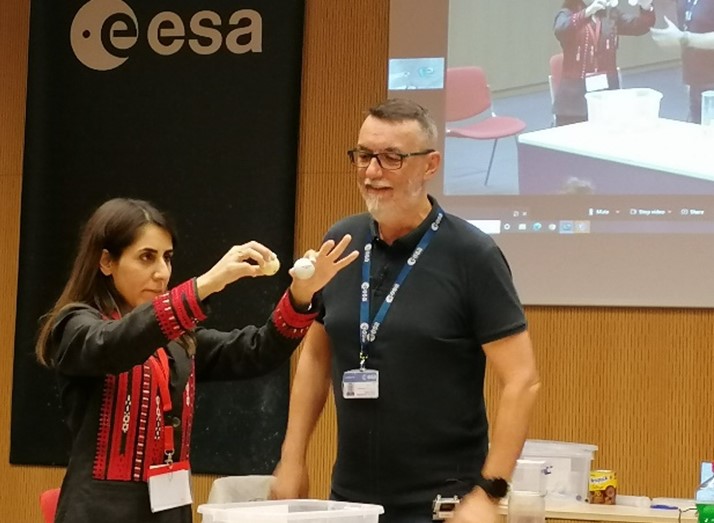
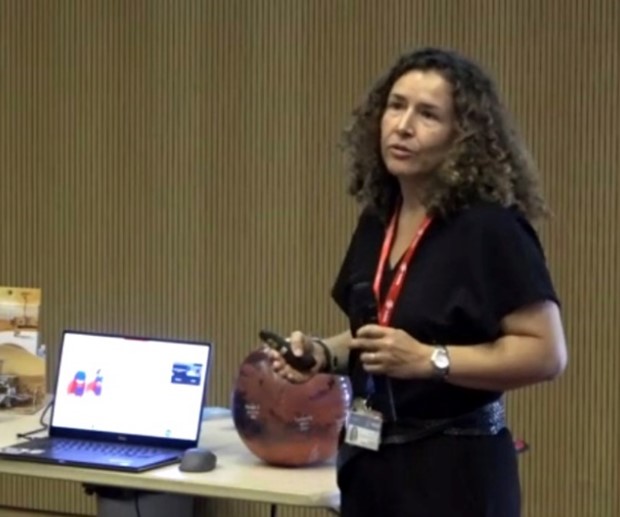
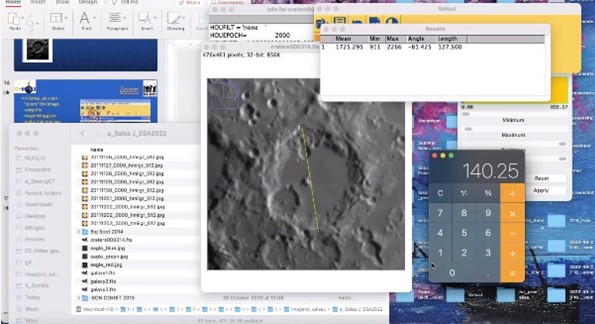
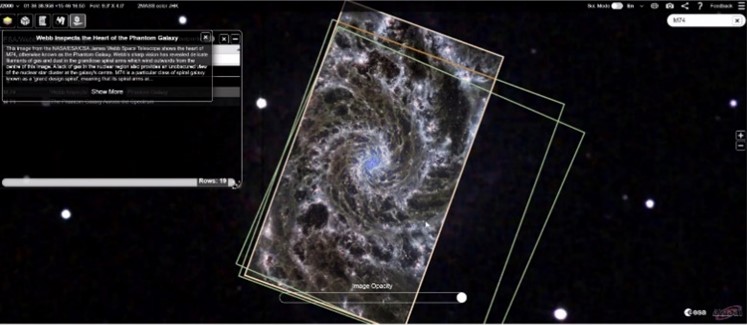
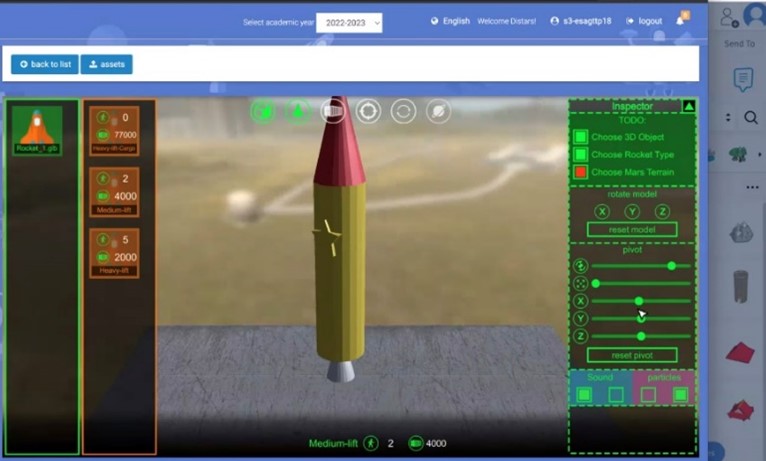
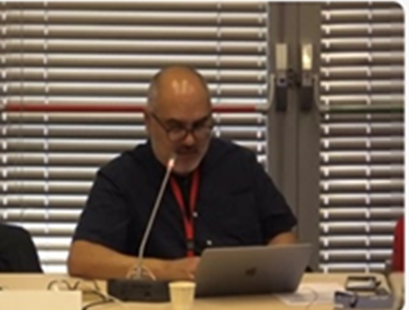
Figure 6: (Top left) Astrobiology workshop run by Juan Angel Vaquerizo (ISDEFE for CESAR), (Top right) Introduction to the Space Science Experiences presented by Dr. Beatriz M. González García (ISDEFE for CESAR), (Centre left) Study of the Moon surface using SalsaJ, (Centre right) Visualization of the M74 data collected by the JWST mission and accessible through ESASky, (Bottom) Introduction to the story-telling platform DISTARS by Dr. Gustavo Rojas.
By the first time on the ESA_GTTP we could count with a round table under the topic "Inclusion and Innovation in Education", moderated by the CESAR Team coordinator, Sandra Benitez.
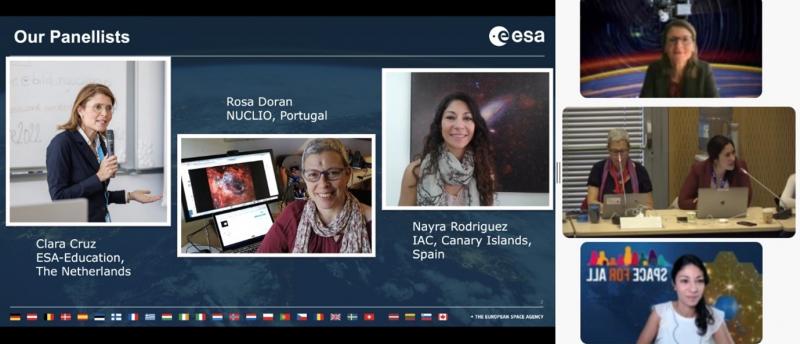
Figure 7 : Panellists of the round table about "Inclusion and Innovation in Education"
If you were interested in getting to know more details about the ESA_GTTP2022, please visit the following links and visit the teacher training website, the ESA_GTTP2022 repository, comments posted during the training on the CESAR twitter (@esa_cesar_es) as well as to visualize the expert talks on the ESAC YouTube channel.
http://galileoteachers.org/esa-gttp-2022/
https://cesar.esa.int/folder.php?Folder=79&K=c90040ff1c
https://twitter.com/search?q=%23ESA_GTTP2022&src=typed_query&f=live
https://www.youtube.com/channel/UChy81-tY_eRPHL_5cuvlsEA